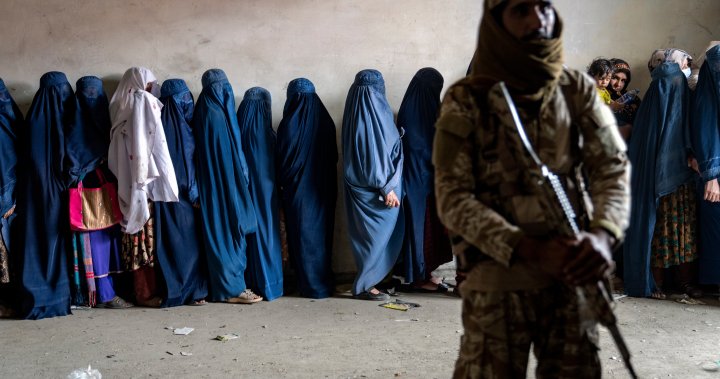U.N. Urged to Support Governments in Declaring Taliban’s Treatment of Women as “Gender Apartheid”
The head of UN Women, Sima Bahous, has called on the U.N.’s most powerful body to support governments in legally declaring the Taliban’s crackdown on women and girls in Afghanistan as “gender apartheid.” In a meeting with the Security Council, Bahous highlighted that more than 50 Taliban edicts, enforced with increasing severity by male family members, are exacerbating mental health issues and diminishing women’s decision-making power, even in their own homes. She argued that while the internationally recognized definition of apartheid refers to racial segregation, there is a growing consensus amongst experts that it can also be applied to cases of gender discrimination, such as in Afghanistan.
Bahous urged the Security Council, including its five permanent members, to lend their full support to an intergovernmental process that would explicitly codify gender apartheid in international law. She emphasized the urgent need to respond to the Taliban’s systematic assault on women’s rights, stating that there is currently no existing international law to address “mass, state-sponsored gender oppression.” Bahous called for the Taliban’s actions to be named, defined, and outlawed in global norms.
The Taliban, who took power in August 2021, have gradually reimposed their strict interpretation of Islamic law, restricting girls’ education, women’s access to employment and public spaces, and recently closing beauty salons. They face widespread condemnation and have not been recognized by any country or U.N. body due to their treatment of women and failure to form an inclusive government.
UN Women collaborated with other U.N. agencies to interview over 500 Afghan women, revealing that 46% believe the Taliban should not be recognized under any circumstances, and 50% believe recognition should only be granted if the Taliban restores women’s rights. The women reported a significant loss of influence in decision-making at all levels, which is attributed to increased poverty, decreasing financial contribution, and the imposition of hyper-patriarchal gender norms by the Taliban. The restrictions on women have also led to a rise in child marriage, child labor, and mental health issues, with 90% of young women respondents reporting bad or very bad mental health.
In response, the U.N. envoy for Afghanistan, Roza Otunbayeva, welcomed the recent visit of Islamic scholars to Afghanistan, who focused on girls’ education, women’s rights, and inclusive governance. Otunbayeva stressed the importance of ongoing dialogue between the Taliban and the international community, mediated by the Islamic world. She acknowledged that Taliban leader Mullah Hibatullah Akhundzada holds the final say in decision-making and expressed concern that his hardline policies may hinder any meaningful change.
As winter approaches and funding remains inadequate, Otunbayeva appealed to donors to support the $3.2 billion humanitarian appeal for Afghanistan. She warned that without sufficient funding, the country’s acute food insecurity crisis could escalate into famine, leaving millions of Afghans at risk.
Denial of responsibility! Vigour Times is an automatic aggregator of Global media. In each content, the hyperlink to the primary source is specified. All trademarks belong to their rightful owners, and all materials to their authors. For any complaint, please reach us at – [email protected]. We will take necessary action within 24 hours.


